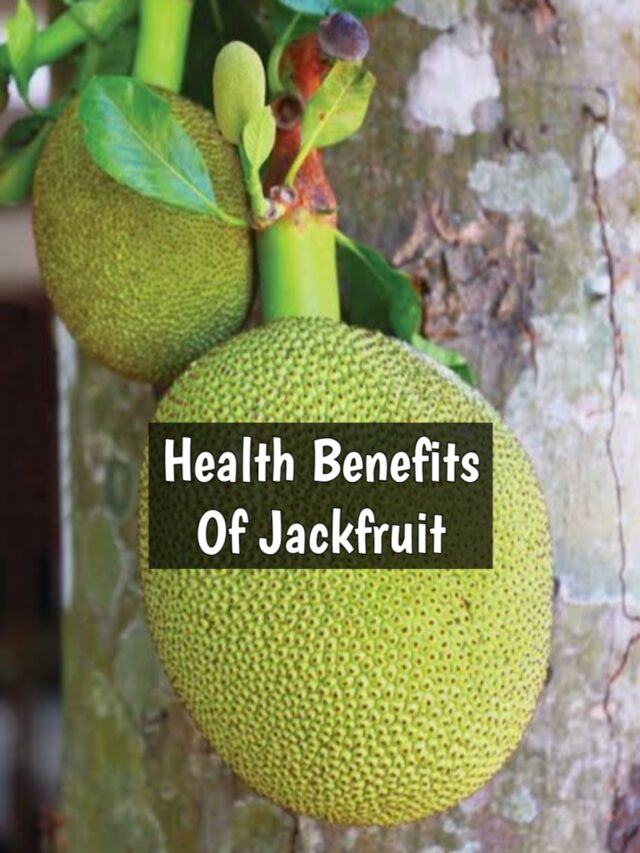Health and Fitness
The Impact of Excess Caffeine Consumption on Health: Understanding the Risks
In today’s fast-paced world, caffeine has become a ubiquitous companion for many, helping to kick-start mornings and keep energy levels up throughout the day. Found naturally in coffee beans, tea leaves, and cacao, caffeine is also added to many beverages and snacks. While moderate consumption can provide a temporary boost in alertness and concentration, excessive intake can lead to a range of health issues. Understanding these risks is crucial for maintaining a balanced and healthy lifestyle.
How Much is Too Much?
The tolerance to caffeine varies from person to person, but generally, moderate consumption is considered safe for most adults. The Mayo Clinic suggests that up to 400 milligrams (mg) of caffeine per day, roughly the amount in four cups of brewed coffee, is unlikely to cause any harm for healthy adults. However, exceeding this limit or consuming caffeine late in the day can disrupt sleep patterns, leading to insomnia or poor-quality sleep.
Physical Effects of Excess Caffeine
- Cardiovascular Issues: Overconsumption of caffeine can lead to increased heart rate, palpitations, and elevated blood pressure. These effects can be more pronounced in individuals who are sensitive to caffeine or have pre-existing heart conditions.
- Digestive Problems: Caffeine stimulates the production of stomach acid, which can exacerbate acid reflux or lead to gastrointestinal discomfort, including stomach cramps and diarrhea.
- Muscle Tremors and Nervousness: High doses of caffeine can cause jitteriness, anxiety, and even panic attacks in susceptible individuals. It can also lead to muscle tremors and restlessness.

Long-Term Health Risks
- Dependency and Withdrawal: Regular consumption of large amounts of caffeine can lead to dependence, where individuals experience withdrawal symptoms such as headaches, irritability, and fatigue when caffeine intake is reduced.
- Bone Health: Excessive caffeine intake has been linked to reduced calcium absorption, which could potentially weaken bones over time, increasing the risk of osteoporosis.
- Reproductive Health: High levels of caffeine consumption have been associated with fertility issues in both men and women. In pregnant women, it may increase the risk of miscarriage or low birth weight.
Psychological Impact
Beyond physical health, excessive caffeine consumption can also affect mental well-being. It can exacerbate anxiety disorders and contribute to feelings of nervousness or agitation. In some cases, it may impair judgment and exacerbate symptoms of certain psychiatric conditions.
Finding Balance
For those who enjoy caffeinated beverages, moderation is key. Monitoring daily intake and being mindful of the sources of caffeine can help prevent overconsumption. Alternating caffeinated drinks with water or herbal teas can also reduce overall intake while staying hydrated.
Conclusion
While caffeine can offer short-term benefits, particularly in enhancing alertness and focus, excessive consumption poses significant health risks. From cardiovascular issues to digestive discomfort and potential long-term effects on bone health and fertility, the impacts of over consumption should not be underestimated. Maintaining a balanced approach to caffeine intake is essential for safeguarding both physical and mental well-being. By being aware of personal limits and choosing moderation, individuals can enjoy the benefits of caffeine without compromising their health.
Health Benefits of Adding Seeds to Your Diet
In recent years, seeds have gained recognition as nutritional powerhouses packed with essential nutrients and health-promoting properties. From chia and flaxseeds to sunflower and pumpkin seeds, these tiny packages are versatile additions to a balanced diet. Incorporating seeds into your meals can provide numerous health benefits, ranging from improved heart health to enhanced digestion. Let’s explore why you should consider adding seeds to your daily diet:
1. Rich Source of Nutrients
Seeds are dense in essential nutrients such as vitamins (like vitamin E and some B vitamins), minerals (such as magnesium, zinc, and selenium), and healthy fats (omega-3 and omega-6 fatty acids). These nutrients play crucial roles in maintaining overall health, supporting immune function, and aiding in cellular processes.
2. Excellent Source of Plant-Based Protein
For those following a plant-based diet or looking to increase their protein intake, seeds are a valuable source. Hemp seeds, chia seeds, and sesame seeds, among others, contain significant amounts of protein per serving. Incorporating these into meals can help meet daily protein requirements without relying solely on animal products.
3. High in Fiber
Most seeds are rich in dietary fiber, which promotes digestive health and helps regulate bowel movements. Fiber also contributes to a feeling of fullness, which can aid in weight management by reducing overall calorie intake.
4. Support Heart Health
Many seeds, such as flaxseeds and chia seeds, are abundant in alpha-linolenic acid (ALA), a type of omega-3 fatty acid known for its heart-protective benefits. These fatty acids can help lower cholesterol levels and reduce the risk of cardiovascular diseases when consumed as part of a balanced diet.
5. Antioxidant Properties
Seeds like sunflower seeds and pumpkin seeds are rich in antioxidants such as vitamin E, selenium, and phenolic compounds. These antioxidants help protect cells from oxidative stress caused by free radicals, thereby reducing inflammation and lowering the risk of chronic diseases.
6. Blood Sugar Regulation
Certain seeds, including flaxseeds and chia seeds, have been shown to help regulate blood sugar levels. The soluble fiber and alpha-linolenic acid in these seeds may improve insulin sensitivity and reduce spikes in blood sugar after meals, making them beneficial for individuals with diabetes or those at risk of developing it.
7. Versatility in Culinary Use
Seeds can easily be incorporated into various dishes, from breakfast cereals and smoothies to salads, soups, and baked goods. They add texture, flavor, and a nutritional boost to meals without requiring complicated preparation.
8. Promote Healthy Skin and Hair
The vitamins, minerals, and healthy fats found in seeds contribute to maintaining healthy skin and hair. Omega-3 fatty acids, in particular, support skin hydration and elasticity, while zinc and vitamin E help promote skin cell renewal and protect against UV damage.
9. Potential Anti-Inflammatory Effects
Some seeds, such as hemp seeds and flaxseeds, contain compounds with anti-inflammatory properties. Incorporating these seeds into your diet may help reduce inflammation in the body, which is linked to various chronic conditions such as arthritis and heart disease.
10. Easy to Incorporate into a Balanced Diet
Adding seeds to your meals doesn’t require much effort. Sprinkle them on top of yogurt or oatmeal, blend them into smoothies, mix them into baked goods, or use them as a crunchy topping for salads and soups. This simple addition can significantly enhance the nutritional profile of your meals. In conclusion, seeds are nutrient-dense powerhouses that offer a wide array of health benefits when included in your diet regularly. Whether you’re looking to boost your intake of essential nutrients, support heart health, or enhance digestive function, seeds provide a convenient and delicious way to promote overall well-being. Experiment with different varieties to discover your favorites and enjoy the diverse health benefits they offer.
The Deadly Impact of Tobacco: Understanding its Effects on Health and Society
Tobacco use remains one of the most significant public health challenges worldwide, exacting a devastating toll on individuals, communities, and economies. Despite widespread awareness of its harmful effects, tobacco continues to be consumed globally, leading to a myriad of health problems and societal issues.
Health Effects
The primary impact of tobacco manifests in its severe health consequences. Smoking, for instance, is a leading cause of preventable deaths globally, contributing to a range of diseases such as lung cancer, heart disease, chronic obstructive pulmonary disease (COPD), and stroke. Secondhand smoke, equally harmful, affects nonsmokers exposed to it, increasing their risk of respiratory infections and heart disease.
Moreover, smokeless tobacco products, including chewing tobacco and snuff, are associated with oral cancers, gum disease, and nicotine addiction. The addictive nature of nicotine makes quitting tobacco a daunting challenge for many users, perpetuating the cycle of health risks.
Social and Economic Impact
Beyond health, tobacco use has profound social and economic ramifications. Families often bear the brunt of its consequences, experiencing emotional distress and financial strain due to medical expenses and lost productivity. In communities, tobacco-related illnesses strain healthcare systems and diminish workforce productivity, posing a burden on national economies.
Furthermore, tobacco cultivation and production have environmental implications, leading to deforestation, soil degradation, and water pollution. The industry’s influence extends to policy-making, with tobacco companies sometimes lobbying against stringent regulations that could curb tobacco use and protect public health.
Global Efforts and Challenges
Efforts to combat tobacco use have seen progress, with initiatives like tobacco taxation, public smoking bans, and comprehensive advertising restrictions proving effective in some regions. Awareness campaigns and smoking cessation programs also play a crucial role in encouraging individuals to quit and preventing youth initiation.
However, challenges persist. Tobacco remains deeply ingrained in cultural and social norms in many societies, making behavior change difficult. The tobacco industry’s aggressive marketing strategies, particularly targeting vulnerable populations and emerging markets, continue to undermine public health efforts.
Conclusion
Addressing the impact of tobacco requires a multifaceted approach involving government regulation, public education, and community engagement. Effective tobacco control policies must prioritize prevention, cessation support, and protection from exposure to secondhand smoke. Empowering individuals with knowledge about the health risks and social consequences of tobacco remains crucial in shifting societal attitudes and behaviors.
Ultimately, reducing tobacco use is not just a health imperative but a societal responsibility. By advocating for stronger policies and supporting individuals in their efforts to quit, we can mitigate the devastating effects of tobacco on health, society, and the environment, paving the way towards a healthier future for all.







